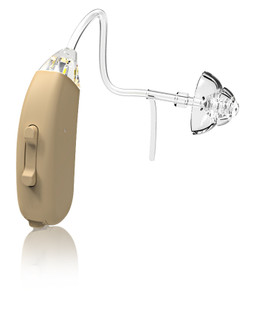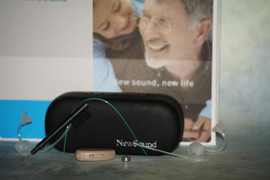Hearing Aids 101: What You Need to Know Before Buying
Posted by DR Paul on Mar 13, 2025
In a world where communication forms the bedrock of our daily interactions, hearing loss can feel like a formidable barrier. However, the right hearing aid can bridge this gap, opening doors to clearer conversations and enriched experiences. Whether you're purchasing your first pair or updating to a newer model, understanding what goes into choosing the perfect hearing aid is crucial. This guide will walk you through everything you need to know before making this important investment in your auditory health. Let's take this journey together and find the solution that best fits your lifestyle needs.
Understanding the different types of hearing aids that are available:
The first step in buying hearing aids is understanding the different types available on the market. Hearing aids come in various styles, such as behind-the-ear (BTE), in-the-ear (ITE), in-the-canal (ITC), and completely-in-canal (CIC) models. Each style has its own set of benefits tailored to different levels of hearing loss and lifestyle preferences. BTE models are often more durable and suitable for severe hearing loss, while ITC or CIC models offer a more discreet appearance but may be better suited for mild to moderate hearing losses. Consulting with an audiologist can help match you with a style that balances performance with comfort.
Familiarizing yourself with hearing aid features:
Equally important is familiarizing yourself with the features modern hearing aids offer. Today’s devices go far beyond basic amplification; they come equipped with advanced technology designed to enhance sound quality and user convenience. Digital noise reduction helps minimize background noise, making it easier to focus on conversation even in noisy environments like restaurants or social gatherings. Some models also include Bluetooth connectivity, allowing users to connect their devices directly to smartphones or TVs for improved audio streaming—perfect for those who enjoy media without external interference.
Hearing Aid Battery Life:
Battery life is another key consideration when selecting a hearing aid, as it affects both usability and cost-effectiveness over time. Traditional disposable batteries can last from several days up to two weeks depending on usage patterns, while rechargeable options provide an environmentally-friendly alternative that’s gaining popularity among many users today due to their ease of use and long-term savings potential. Assessing your daily routine and energy consumption habits will help determine which battery type best suits your needs.
Hearing Aid Fit:
The fit of your hearing aid plays a critical role not only in comfort but also in sound quality enhancement; therefore, customizing them according to ear shape ensures optimal performance while minimizing discomfort during extended wear periods throughout the day—particularly important if wearing them at work or social functions regularly becomes necessary after purchase! Many manufacturers offer trial periods where adjustments by professionals can be made until satisfaction is achieved without incurring additional costs—a valuable service worth considering!
Hearing Aid Maintenance:
Lastly—and perhaps most importantly—is taking into account how much support you'll have post-purchase regarding maintenance services available locally within proximity should issues arise unexpectedly requiring immediate attention from qualified personnel trained specifically handling these sophisticated instruments properly maintaining peak operation standards consistently across lifetime ownership.
Besides repairs, you'll likely want advice on how to avoid potential damages and changes to optimize performance if time has passed since initial purchase. Purchasing from a reputable distributor specializing in hearing aids offers peace of mind with people behind the products standing by their workmanship! So, when deciding where to buy your new hearing aid, research well and seek recommendations from friends or family members who have gone through the process themselves. Don't hesitate to ask questions and make sure you feel confident in your decision before making a purchase. Remember, this is an investment in your overall quality of life and it's important to choose a reliable provider that will be there for you every step of the way.










